Some jobs are always hiring, but why?
Here are some of the top always-hiring job opportunities during lean times, why you might want them, and why you might not.

by CRRookwood
Some jobs are always hiring, but why?
Here are some of the top always-hiring job opportunities during lean times, why you might want them, and why you might not.
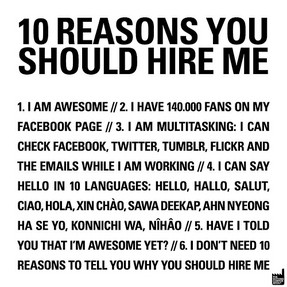 How many times have you heard an unemployed or underemployed person say, "I just want a job, any job"?
How many times have you heard an unemployed or underemployed person say, "I just want a job, any job"?
If you live in the United States, you probably hear that plaintive phrase a lot.
Between 2007 and 2008, millions of jobs disappeared in the U.S. As recently as 2012, somewhere between 7 and 15 million Americans were still out of work--and the situation is even worse if you take into account professional persons who are not underemployed in the services industry.
When workers are plentiful and jobs are few, it's tempting to lower your standards and just grab whatever you can get. Sometimes you have to do that, and there's no shame in it.
But some jobs are so incredibly bad, stressful, or low-paid that even in a down economy, you might want to think twice, and then think again, before agreeing to come on board.
What follows is a list of real jobs that are really hiring in the U.S., and why they go begging for workers month after month.
In some cases, there's a really good reason.
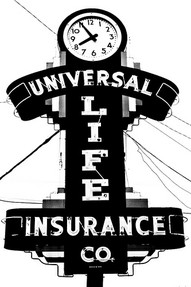 In the U.S., anyone who posts a resume on Monster or Careerbuilder will soon get a call from a life insurance company recruiter. Come in and find out about a great job opportunity that matches your skills exactly!
In the U.S., anyone who posts a resume on Monster or Careerbuilder will soon get a call from a life insurance company recruiter. Come in and find out about a great job opportunity that matches your skills exactly!
If you do show up, you find that you will start by drumming up potential new recruits for the company and getting them to show up to an interview, at which time they'll be offered the chance to phone potential new recruits and get them to show up for an interview... and so on and so forth.
Eventually, if you prove yourself, you can take your Life and Health Insurance licensing exam, and if you pass the test you will soon be selling supplement health policies to old people (mostly) and trying to keep more experienced agents from hijacking your commission.
These jobs are draw against commission sales positions, which means that once you become an agent you can draw a regular salary, but you will have to exceed that salary in commission sales each week or else you will actually end up owing the company money. Fees are also deducted from your commission checks to pay for the office, the receptionist, and other essentials.
While you are doing the outbound calling you are considered a subcontractor and are paid by the interview. If you don't get anyone to show up for an interview, you don't get paid.
Opportunities: If you are the one person in one hundred who is good at this job, you can make a six figure income after about five years.
Drawbacks: If you one of the 99 people out of 100 who isn't good at this job, you will work very hard for anywhere from one afternoon to a few months and end up with very little money or maybe even a bill from your employer. Even if you are the one out of 100, you will have about 10-15 years to save enough to retire or change jobs, because after about 10 years they will kick you to the curb no matter what. This is job with a definite 'shelf life'.
 Most of the big banks and credit card companies now offer financial advisor positions modeled after the Supplemental Life, Health & Disability Agent jobs. You start by doing outbound calls drumming up fresh meat recruits and you do that as an independent contractor.
Most of the big banks and credit card companies now offer financial advisor positions modeled after the Supplemental Life, Health & Disability Agent jobs. You start by doing outbound calls drumming up fresh meat recruits and you do that as an independent contractor.
Drum up enough fresh meat and you get to take a financial licensing exam and then try to convince people with money to let you tell them what to do with it. Good luck finding such people, and good luck selling them horrible financial products while still being able to look at yourself in the mirror each morning. (Hint: Target frightened elderly folks.)
Opportunities: You can learn a lot about the dark side of human nature at this job.
Drawbacks: You will be required to demonstrate the dark side of human nature at this job.
 Home health care workers do not have to have nursing degrees but they may or may not get some training as part of the job in tasks like giving a sponge bath, moving a person safely, and proper oral hygiene. You will have to undergo a background check and fill out LOTS of forms.
Home health care workers do not have to have nursing degrees but they may or may not get some training as part of the job in tasks like giving a sponge bath, moving a person safely, and proper oral hygiene. You will have to undergo a background check and fill out LOTS of forms.
Home health care workers are always in great demand by agencies that recruit them. The work can be physically demanding, but many agencies allow you to choose your assignments, so if you'd rather just sit with a terminally ill patient (and give no sponge baths), you can sometimes do that.
You tell the home health care agency you work for what hours you are available and what you are willing to do. They call you when they have work that fits.
Opportunities: If you are considering going back to school in the health care field, having this job on your resume is not a bad thing, and you will also get some sense of whether or not you really like the working in the helping professions.
Drawbacks: The pay is very low. This job offers very little room for advancement, and the assignments can be sporadic, so you won't necessarily get the hours you want or need week after week. Many of the duties are similar to what a maid does (washing dishes, vacuuming, shopping), and sometimes elderly people can be demanding and difficult.
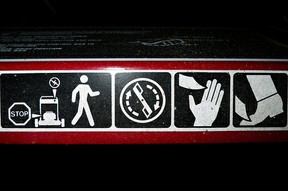 During the late winter/early spring you will see lots of advertisements for landscape crews and lawn maintenance workers. I did this work when I was younger, and it isn't all bad.
During the late winter/early spring you will see lots of advertisements for landscape crews and lawn maintenance workers. I did this work when I was younger, and it isn't all bad.
You get to be outside, and if you are working witha landscape crew, you get to help create a beautiful garden or hardscape feature.
You also learn a lot about different types of plants and how they grow, and if you care about getting a tan, you will get one doing this for sure. Conversely, when it rains, you are in that too.
Most people grossly underestimate how physically demanding this work is, however. I can't even count the number of buff young men who came on board where I worked, started throwing trees and shrubs around like the Incredible Hulk, and by lunch time had disappeared forever, never to return, not even to pick up their small check.
If you can dig a hole, you will always have a job, but can you dig a hole for eight to fourteen hours a day, day in day out? You have to pace yourself, and if you get hurt, you are on your own, because most owners of landscape companies can't afford to offer health insurance to their workers.
Opportunities: If you like this work you will never be without work. You can go to school in landscape design or architecture or any number of other horticultural fields and eventually earn good money. Winters will be lean at first but you will be in the best physical shape of your life.
Drawbacks: Opportunities to hurt yourself are many. Some landscape business owners are not very keen on paying their crews regularly or honestly, but if this happens to you, moving to another crew is not a problem. Work is plentiful, good workers are few.
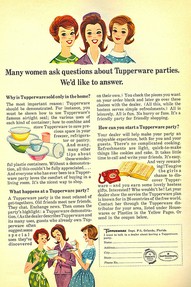 Multi Level Marketing or MLM runs the gamut from home party businesses like Tupperware, Mary Kay, and Longaberger Baskets to various vitamin supplements that cost as much as a new transmission and promise to keep you well forever no matter what.
Multi Level Marketing or MLM runs the gamut from home party businesses like Tupperware, Mary Kay, and Longaberger Baskets to various vitamin supplements that cost as much as a new transmission and promise to keep you well forever no matter what.
All Multi Level Marketing schemes work by getting you to draw new recruits into the MLM business. The more recruits you get, the more money you make. You also have to sell stuff that is very expensive and spend a lot of time on the phone and in other people's homes convincing them that they too can make a lot of money doing whatever you are doing.
Opportunities: If you are one of the few recruits who is really good at this, you can make good money. Very few people are good at this.
Most MLM schemes offer lots of perks and rewards like stuff, vacations, and cars, and some people are very attracted to that.
Drawbacks: You can work pretty hard and alienate most of your friends and family and end up with not much more than some 'free' MLM products. Some businesses will require you to lay out money up front for a starter kit, and you have to have certain cult-like devotion to the company.
 I purposely left some jobs off of this list that most people used to think were easy to get.
I purposely left some jobs off of this list that most people used to think were easy to get.
These jobs are not that easy to get anymore, especially in major metropolitan areas.
Jobs like retail, retail merchandising, fast food, and restaurant work are not as plentiful as they once were in many parts of the country.
If you are applying with a major retail or food chain, which you usually will be, you will undergo a long interview process that includes drug urinalysis, extensive online personality testing, skill testing, various background checks, and multiple interviews (assuming you get past the first filter of personality testing and background checks).
Some of these jobs now also require a credit check, and since only about one third of the households in the United States have anything remotely resembling good credit anymore (due to the 2008 financial meltdown, job loss, foreclosures, medical debt, and other financial issues), that check alone knocks out lots of applicants right off the bat.
If you are able to get one of these jobs though, to tide you over (until, hopefully, things get better in the world of regular employment), other problems present themselves quickly.
The very low pay (usually minimum wage give or take fifty cents) means that in many metropolitan areas your first hour or so of work will be canceled out by the cost of getting there and sometimes the cost of parking as well. If you make $7 or $8 an hour, that means that for a four hour evening shift you will clear less than $20 after withholding and transportation costs.
Often, retail and restaurant chains will schedule part-time employees up to 39 hours per week and spread that out over six or seven days. maximizing your commuting expenses and minimizing your pay and benefits.
Still, if you need to try one or several of these jobs while working out a new future for yourself, at least you have an idea what you are getting into and what to expect.
And for a very, very few, one of these jobs might just be a perfect fit.
For those who don't 'fit', don't feel bad. You are not alone.
And no one--not even your employer--will blame you when you finally bail.
Working free for someone? Don't dismiss Unpaid Internships out of hand becau...
Jobs In Australia For AmericansAre there any jobs in Australia for Americans? - You Bet There Is! I'll show ...
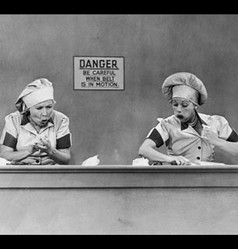
Comments